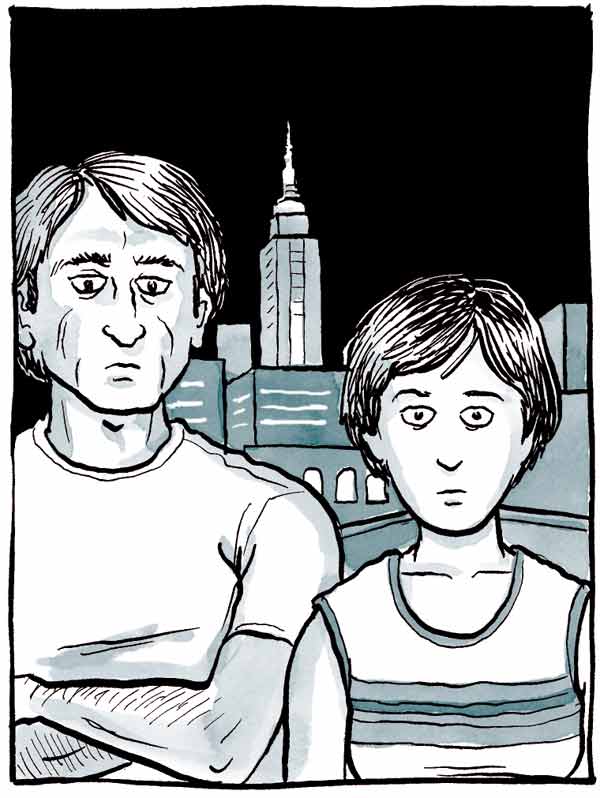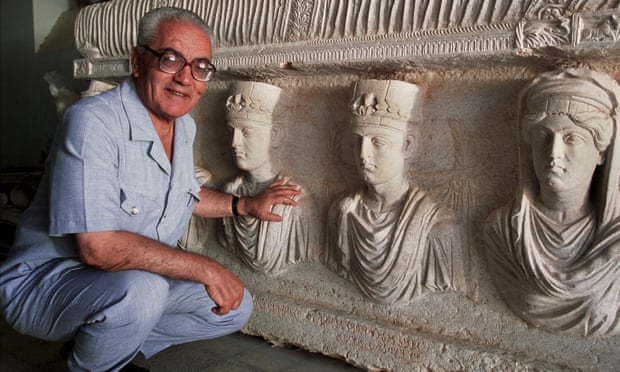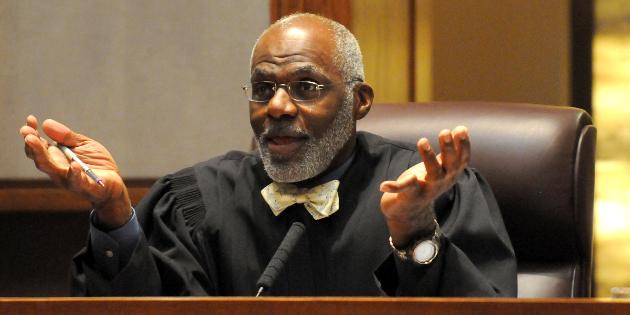
A hundred years ago, when I interviewed for a teaching job at Dordt College, the only question I feared being asked was something about "dirty books"--"would you teach 'em, young man?"
I was afraid of it because that kind of question is far easier to ask than answer. I had no plans--covert or otherwise--to introduce Dordt kids to porn, but what Aunt Harriet thinks is"dirty" may be greatly different than what Cousin Ernie does.
That scary question was asked, but I must have answered it satisfactorily. I got the job and stayed nearly forever.
Sad to say, the question of "dirty books" is the one question about literature that can still grab headlines, as it did a week or so ago when a Christian student enrolled at Duke University made it clear that he wasn't going to read a graphic novel (graphic as in comic book, by the way) titled Fun Home, by Alison Bechdel, author (and artist) of a syndicated comic strip Dykes To Watch Out For.
Got that title? Then you know where this is going. Fun Home is a memoir, still a hot genre, the coming of age story of Ms. Bechdel. Some of the cartoon panels (few, but some) feature drawings of unclothed women doing lesbian things, and the Christian students who protested were particularly adamant about not having to look those panels.
The committee who chose Fun Home determines a reading list to create what they call "the Duke Common Experience," a strategy for inciting thoughtful dialogue among incoming freshman. It's a noble idea, I think: if you're standing in a registration line beside a couple of kids you don't know from the Katzenjammer kids, you've got a couple of books to talk about, including one that includes a cartoon panel or two that makes clear what it is lesbians do in bed. Obviously, the committee's strategy worked.
“I think it will be a great vehicle for conversations among the incoming class about art and storytelling; about personal and sexual identities," said Professor of History Simon Partner. "[It's] about truth and lies, and the harm both can cause; and about judgment and forgiveness."
He's right. I know. I read it because it raised the cane it did at Duke.
It wasn't the only book the committee recommended, by the way. The list included All the Light we Cannot See, It Happened on the Way to War, Red, The Righteous Mind: Why Good People are Divided by Politics ad Religion, The Shallows: What the Internet is Doing to our Brains.
[Note to reader: if you haven't read All the Light We Cannot See, please do. It's unforgettably good. The others I don't know.]
I bought Fun Home for my Kindle because this time I was sure I would side with the Christians. I really was. After all, The Duke Common Experience Committee knew darn well they'd raise cane. “Because of its treatment of sexual identity, the book is likely to be controversial among students, parents and alumni," Prof Partner said in a note introducing the selections. "I think this, in turn, will stimulate interesting and useful discussion about what it means, as a young adult, to take a position on a controversial topic.”
No kidding.
I was afraid of it because that kind of question is far easier to ask than answer. I had no plans--covert or otherwise--to introduce Dordt kids to porn, but what Aunt Harriet thinks is"dirty" may be greatly different than what Cousin Ernie does.
That scary question was asked, but I must have answered it satisfactorily. I got the job and stayed nearly forever.
Sad to say, the question of "dirty books" is the one question about literature that can still grab headlines, as it did a week or so ago when a Christian student enrolled at Duke University made it clear that he wasn't going to read a graphic novel (graphic as in comic book, by the way) titled Fun Home, by Alison Bechdel, author (and artist) of a syndicated comic strip Dykes To Watch Out For.
Got that title? Then you know where this is going. Fun Home is a memoir, still a hot genre, the coming of age story of Ms. Bechdel. Some of the cartoon panels (few, but some) feature drawings of unclothed women doing lesbian things, and the Christian students who protested were particularly adamant about not having to look those panels.
The committee who chose Fun Home determines a reading list to create what they call "the Duke Common Experience," a strategy for inciting thoughtful dialogue among incoming freshman. It's a noble idea, I think: if you're standing in a registration line beside a couple of kids you don't know from the Katzenjammer kids, you've got a couple of books to talk about, including one that includes a cartoon panel or two that makes clear what it is lesbians do in bed. Obviously, the committee's strategy worked.
“I think it will be a great vehicle for conversations among the incoming class about art and storytelling; about personal and sexual identities," said Professor of History Simon Partner. "[It's] about truth and lies, and the harm both can cause; and about judgment and forgiveness."
He's right. I know. I read it because it raised the cane it did at Duke.
It wasn't the only book the committee recommended, by the way. The list included All the Light we Cannot See, It Happened on the Way to War, Red, The Righteous Mind: Why Good People are Divided by Politics ad Religion, The Shallows: What the Internet is Doing to our Brains.
[Note to reader: if you haven't read All the Light We Cannot See, please do. It's unforgettably good. The others I don't know.]
I bought Fun Home for my Kindle because this time I was sure I would side with the Christians. I really was. After all, The Duke Common Experience Committee knew darn well they'd raise cane. “Because of its treatment of sexual identity, the book is likely to be controversial among students, parents and alumni," Prof Partner said in a note introducing the selections. "I think this, in turn, will stimulate interesting and useful discussion about what it means, as a young adult, to take a position on a controversial topic.”
No kidding.
Ms. Bechdel's family was a grand mess. Her father, a closeted gay man, wandered after the boys he taught in high school. Yes, sexually. His daughter's relationship to him is at the heart of things. Meanwhile, her mother is cold and distant and self-obsessed. What there is for love in that home is strained at best, and greatly unhealthy. Fun Home is also immensely literary with long and involved homage given, unsurprisingly, to Marcel Proust, James Joyce, and Oscar Wilde. If you're in to memoir and gay life, the novel--what Bechdel calls a "tragicomedy"--is an English teacher's dream.
It ain't my cup of tea, okay? I'm glad to have read it because now I understand better what happened at Duke to gather all those pointed headlines, but it isn't a book, a graphic novel, I would have picked up otherwise. I also know more about the American family--not mine, but some.
The greater danger--or so it seemeth to me--is that colleges and universities continue to move toward being purveyors of professional competence and forget the significant calling higher education has taken on for centuries--the task of making students think, a job most definitely created by literature and ideas that are almost certainly not what students like or appreciate.
I have no idea how I answered that board member's question years ago when I was asked about teaching dirty books, but I think today I'd tell them that Dordt College students had best be reading some books they don't already agree with or else Dordt College isn't making them reflect, making them think--and that remains, in my book at least, the most important task of higher education.
Fun Home wasn't required reading. The students who were offended and made headlines for their refusal to read it--or look at its pictures--didn't have to. They were free not to crack a cover. But I understand why Duke's Common Experience Committee assigned it. I wouldn't have, but I'm not about to fault them. Duke's students aren't Dordt's.
It ain't my cup of tea, okay? I'm glad to have read it because now I understand better what happened at Duke to gather all those pointed headlines, but it isn't a book, a graphic novel, I would have picked up otherwise. I also know more about the American family--not mine, but some.
The greater danger--or so it seemeth to me--is that colleges and universities continue to move toward being purveyors of professional competence and forget the significant calling higher education has taken on for centuries--the task of making students think, a job most definitely created by literature and ideas that are almost certainly not what students like or appreciate.
I have no idea how I answered that board member's question years ago when I was asked about teaching dirty books, but I think today I'd tell them that Dordt College students had best be reading some books they don't already agree with or else Dordt College isn't making them reflect, making them think--and that remains, in my book at least, the most important task of higher education.
Fun Home wasn't required reading. The students who were offended and made headlines for their refusal to read it--or look at its pictures--didn't have to. They were free not to crack a cover. But I understand why Duke's Common Experience Committee assigned it. I wouldn't have, but I'm not about to fault them. Duke's students aren't Dordt's.
But if there were a Common Experience at Dordt Committee--not a bad idea, by the way--I'd hope that some title on the list would raise ire or concern or problems.
Because in the real world, ideas do.
























